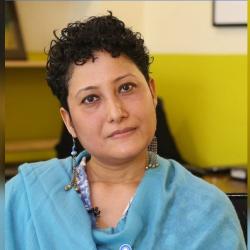A scientist from Tocklai Tea Research Institute (TTRI) in Jorhat has fetched no less ray of hope in the field of tea industry. He claimed to have found that the Kenyan purple tea, in fact, was originated in Assam and that such tea bushes are still found in the state.
Purple tea, claimed to have a host of medicinal properties, has carved out a niche for itself in recent years in Kenya in the domestic market and as an export variety. Kenya is the only country that manufactures purple tea, which fetches three to four times the price of black tea.
He is none other than Pradip Baruah. The principal scientist with the Tocklai Tea Research Institute observed that the clone Tea Research Foundation of Kenya (TRFK) 306/1 for purple tea of Kenya was originally from Assam and wild bushes of the tea were recently found in the hilly forested areas of Karbi Anglong district.
In his key note address at the International Tea Conference at Karatina University in Kenya a couple of months back said, "the tea was originally not considered good for tea manufactured in Assam. Tocklai germplasm collection also has purple tea plants which are commonly known as 'ox blood',"
The unique purple tea of Kenya is found to be rich in anthocyanins and contains lower catechins and caffeine, and is high in antioxidants that provide anti-cancer benefits and improve vision, lower cholesterol and blood sugar metabolism.
“Besides the purple tea clone, of the 51 released by the TRFK till date and used by the tea industry of that country, 41 were of Assam variety and six were Assam-China hybrids,” he said. Kenya is the third largest producer of tea after China and India and the leading exporter in the world. Interestingly, Pakistan is the largest importer of Kenyan tea, buying over 100 million kg from that country.
The scientist observed that tea was first introduced in Kenya around 1903 and early introductions were of Assam variety in the form of seeds.
"G.W.L. Caine first took tea seeds from Assam and planted them in Limuru, near Nairobi, the Kenyan capital. Those first tea bushes have grown into large trees on what is now Unilever's Mabroukie tea estate," he said.
Baruah maintained that Tea Research Institute of East Africa was established in 1951. Later, Tea Research Foundation of Kenya in 1980 (now called Tea Research Institute, Kenya), developed elite planting cultivars through breeding and selection.
"The first set of improved tea clones of Assam variety characterised by general vigour, high density of plucking points and large shoot size were released in 1964," he said adding that after being originated in Assam under the British colonial rulers and developed by the British planters and scientists working in India migrating to Kenya, most of the practices of tea cultivation and production and common words used in tea plantations were of Indian and Assam origin.
"Almost the entire terminology used in tea production and manufacturing are similar to those of Assam as are some of the commonly used words," he said. According to Baruah, “Assam has tremendous potential to produce purple tea, as it is the tea of the future as far as health benefits are concerned. The Tea Board India has also recently stressed on diversification.
"Assam is very rich in tea germplasm being a place of original tea variety. Wild teas are still available in Assam and because of natural hybridisation by open cross pollination a large pool of germplasm exists in the state, many of which are still untested and to be collected for preservation," he said.
The purple tea clone was developed by Kenya targeting new tea products diversification and value addition in order to enhance productivity of teas as well as boost economic growth in the agricultural sector. "It's time we took a leaf out of Kenya's tea book," he said.
- 12909 reads









Add new comment